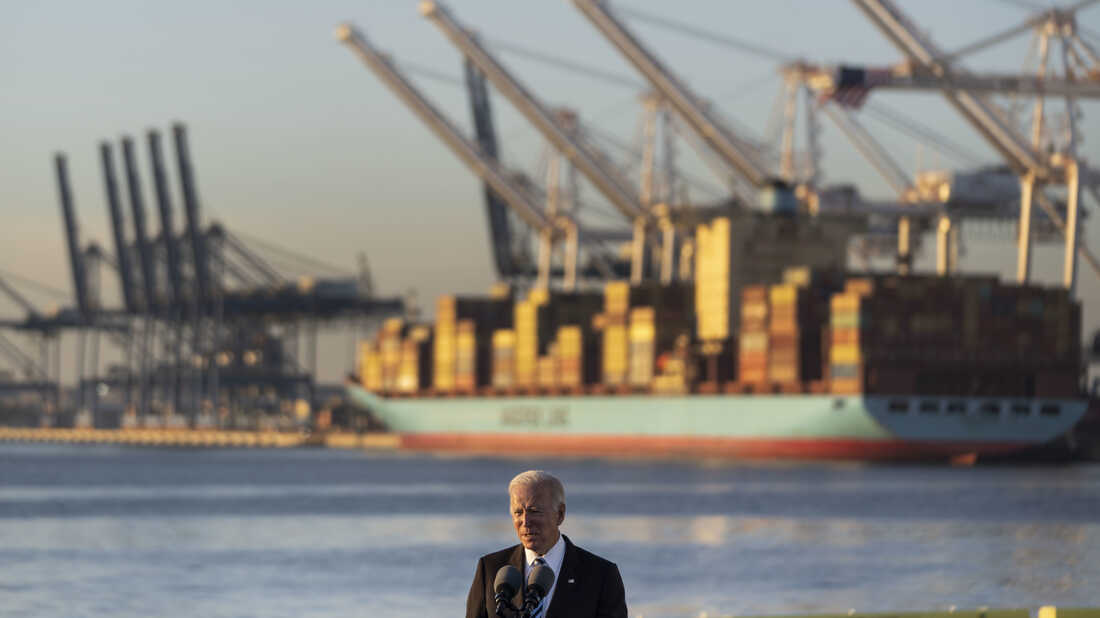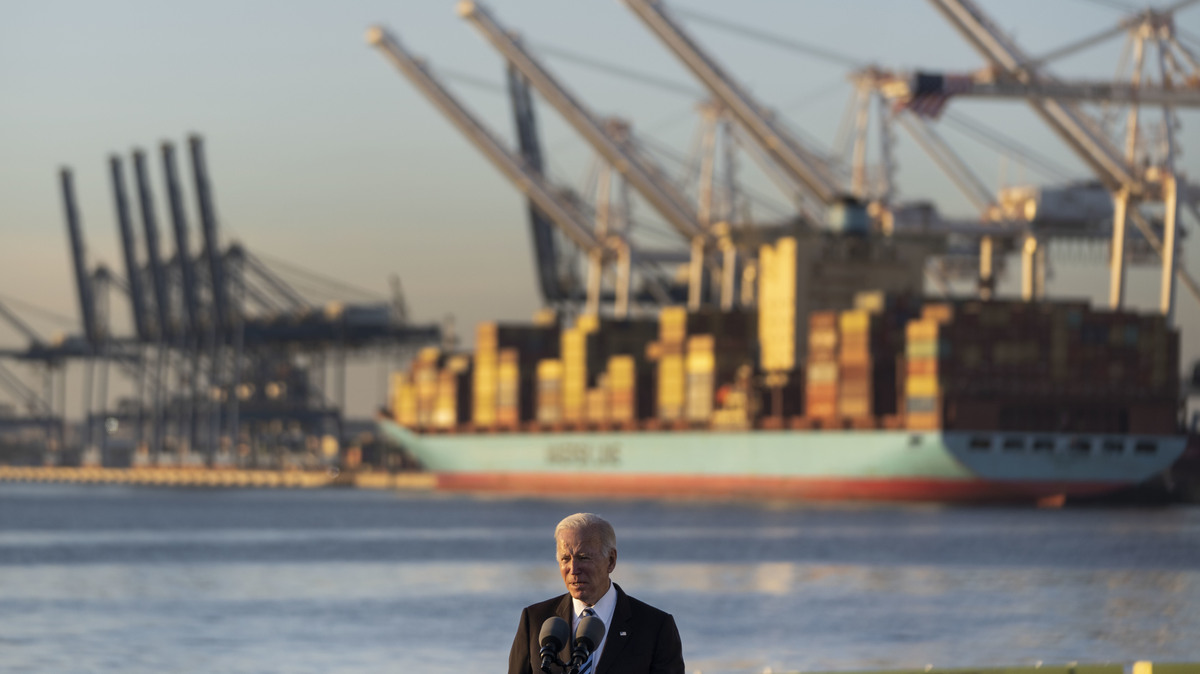
President Joe Biden speaks about the recently passed $1.2 trillion Infrastructure Investment and Jobs Act at the Port of Baltimore on November 10, 2021 in Baltimore, Maryland. Drew Angerer/Getty Images hide caption

President Joe Biden speaks about the recently passed $1.2 trillion Infrastructure Investment and Jobs Act at the Port of Baltimore on November 10, 2021 in Baltimore, Maryland.
Drew Angerer/Getty ImagesThe holiday shopping season is basically here. But a lot of things that Americans want to buy are not. Now the race is on to get goods off ships and into stores and warehouses — before it's too late.
NPRs Scott Horsley reports some retailers are already feeling the pinch from less inventory and higher shipping costs.
Even if goods do make it into the U.S., many are sitting in warehouses, which are bursting at the seams. NPR's Alina Selyukh explains why.
Email us at
This episode was produced by Brent Baughman and Lee Hale. It was edited by Ammad Omar, Rafael Nam, Scott Horsley, and Fatma Tanis. Additional reporting from John Burnett. Our executive producer is Cara Tallo.

 Live Radio
Live Radio